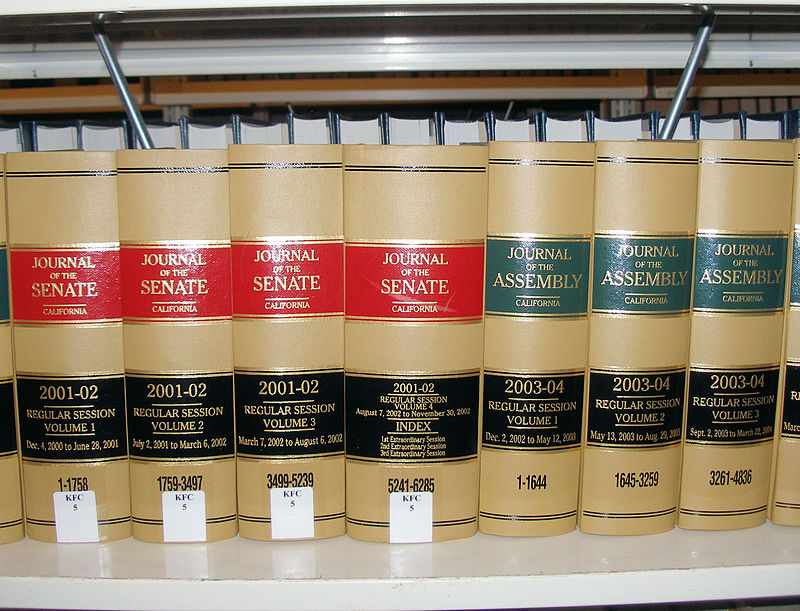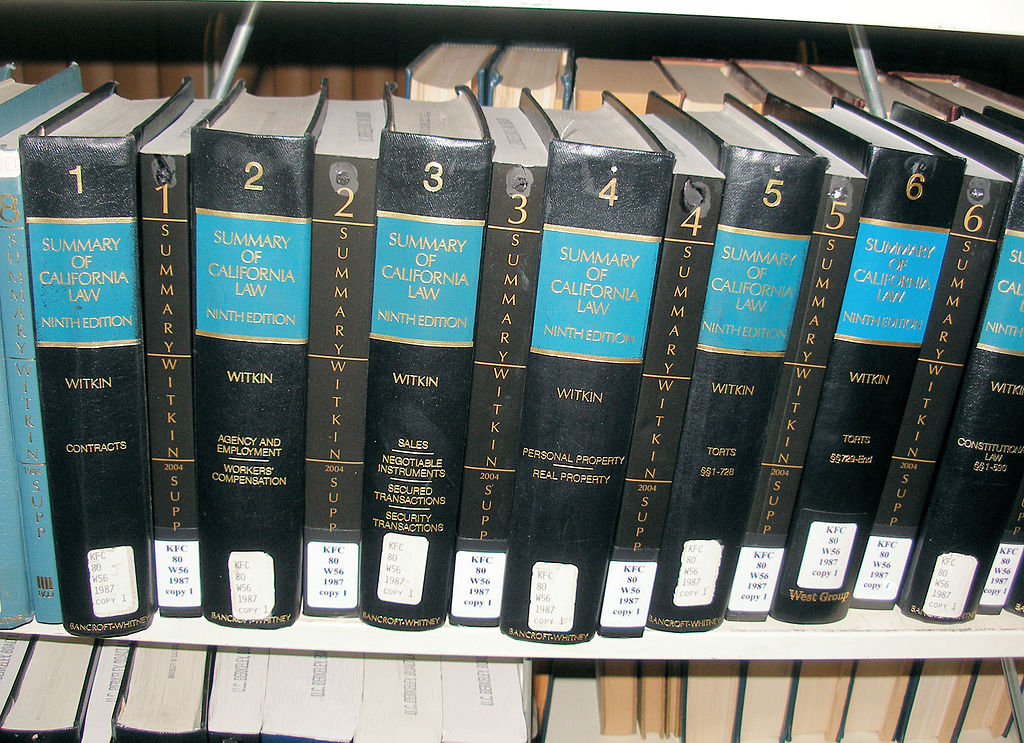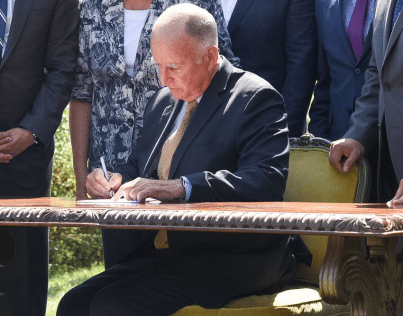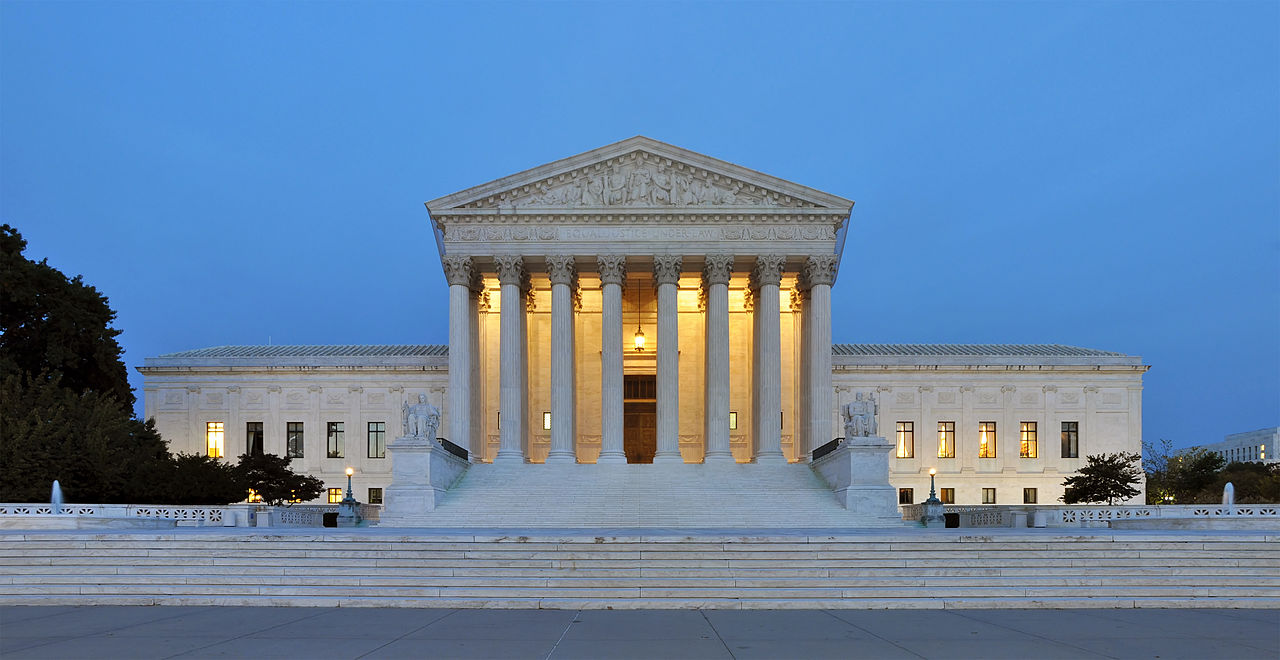
Journals of the California Legislature. (Photo: Wikipedia)
New California Laws on Jurors
‘The bill may be unconstitutional’
By Chris Micheli, October 1, 2020 8:43 pm
Assembly Bill 3070 and Senate Bill 592 , were enacted during the 2020 Legislative Session to make changes to laws impacting jurors.
AB 3070 by Assemblywoman Shirley Weber (D-San Diego): Limitations on peremptory challenges.
Existing laws provide for the exclusion of a prospective juror from a trial jury by peremptory challenge and prohibit a party from using a peremptory challenge to remove a prospective juror on the basis of an assumption that the prospective juror is biased merely because of the sex, race, color, religion, ancestry, national origin, ethnic group identification, age, mental disability, physical disability, medical condition, genetic information, marital status, or sexual orientation of the prospective juror, or on similar grounds.
Governor Newsom signed this bill on September 30. The bill adds, repeals, and adds Section 231.7 of the Code of Civil Procedure. AB 3070, for all jury trials in which jury selection begins on or after January 1, 2022, prohibits a party from using a peremptory challenge to remove a prospective juror on the basis of the prospective juror’s race, ethnicity, gender, gender identity, sexual orientation, national origin, or religious affiliation, or the perceived membership of the prospective juror in any of those groups.
In addition, AB 3070 allows a party, or the trial court on its own motion, to object to the use of a peremptory challenge based on these criteria. Upon objection, the bill requires the party exercising the challenge to state the reasons the peremptory challenge has been exercised. The bill requires the court to evaluate the reasons given and, if the court grants the objection, authorizes the court to take certain actions including, but not limited to, starting a new jury selection, declaring a mistrial at the request of the objecting party, seating the challenged juror, or providing another remedy as the court deems appropriate.
Finally, AB 3070 subjects the denial of an objection to de novo review by an appellate court. The bill, until January 1, 2026, specifies that its provisions do not apply to civil cases.
This bill is intended to change the procedures to determine whether preemptory challenges and challenges for cause have been improperly used to exclude jurors because of their race, ethnicity, gender, gender identity, sexual orientation, national origin or religious affiliation, or perceived membership with any of those groups. Basically, the bill provides that a party shall not use a peremptory challenge to remove a prospective juror on the basis of prospective juror’s race, ethnicity, gender, gender identity, sexual orientation, national origin, or religious affiliation, or the perceived membership of the prospective juror in any of those groups.
The bill’s author successfully argued that the state’s citizens are too often excluded from serving on juries because of their race, ethnicity, gender, sexual orientation, or other legally-protected characteristics. The judicial procedure designed to reduce this long-standing practice is limited to acts of intentional discrimination. According to Assembly Member Weber, this approach has failed and courts have acknowledged that it can be difficult and often impossible for the trial judge to determine whether the lawyer making the challenge actually intended to discriminate.
The bill lists a number of reasons for which a peremptory challenge will be presumed to be invalid unless it can be shown by clear and convincing evidence that a reasonable person would view the rationale as unrelated to a prospective juror’s characteristic. In addition, the bill provides that the denial of an objection made under this section shall be reviewed by the appellate court de novo, except that the trial court’s express factual finding shall be reviewed for substantial evidence.
This bill was sponsored by the California Attorneys for Criminal Justice (CACJ), a statewide association of criminal defense attorneys who successfully argued that the bill will create an effective procedure for bringing an end to discrimination in the selection of juries. Unfortunately, juries across the country, and in California, often fail to adequately reflect a cross-section of the community. Despite current safeguards, too often individuals are excluded from juries because of their race, ethnicity, gender, sexual orientation or other legally-protected characteristics. This bill would improve the process to identify inappropriate bias in the jury selection process.
The California District Attorneys Association opposed the bill on quite a number of bases, including:
ï The bill is premature.
ï The bill illogically includes challenges for cause.
ï The bill is one-sided.
ï The bill will punish innocuous conduct.
ï The bill infers ill intent without any basis.
ï The bill mandates evidentiary presumptions without any support or evidence.
ï The bill runs counter to long-standing Supreme Court precedent.
ï The bill will have unintended consequences.
ï The bill may be unconstitutional.
SB 592 by Sen. Scott Wiener (D-San Francisco) Allows jurors to be summoned from list of tax filers.
The Trial Jury Selection and Management Act (TJSMA) requires all persons be selected for jury service at random and from sources inclusive of a representative cross section of the population of the area served by the court. The TJSMA specifies that the list of registered voters and list of licensed drivers and identification cardholders who are resident within the area served by the court are appropriate source lists for the selection of jurors, and further specifies that these 2 source lists, when substantially purged of duplicate names, are considered inclusive of a representative cross section of the population.
Governor Newsom signed this bill on September 28 as Chapter 230. The bill amends Section 197 of the Code of Civil Procedure and amends Section 19542 and adds Sections 19548.4 and 19585 to the Revenue and Taxation Code. It expands the data sources that are used to create lists for selecting potential trial jurors to include data about California tax filers within a jurisdiction.
SB 592 deems the list of resident state tax filers as an appropriate source list for selection of jurors and, beginning on January 1, 2022, deems the list of resident state tax filers, when substantially purged of duplicate names, to be considered inclusive of a representative cross section of the population, along with the two other source lists.
SB 592 requires the Franchise Tax Board (FTB) to annually furnish the jury commissioner of each county with a list of resident state tax filers for their county in consultation with the Judicial Council. The bill also requires the FTB to revise the California resident income tax return to include a space for the taxpayer’s address of their principal residence and their county of principal residence.
Existing law generally makes it a misdemeanor for specified persons including, among others, officers or employees of the state or its political subdivisions, to disclose information set forth or disclosed in returns, reports, or documents required to be filed under the franchise and income tax laws. SB 592 expressly states that this misdemeanor is applicable to jury commissioners who disclose that information.
This bill was adopted as part of criminal justice reforms in an effort to produce potential jury pools that are truly representative of the community. Under current law, courts need to only utilize driver licensee data and voter registration data in order to produce potential juror lists. This bill attempts to ensure a more diverse jury and improve the sources of data utilized by courts to develop eligible juror lists.
In recognition of the challenges this mandate imposes on state courts, as well as the Franchise Tax Board, the bill delays implementation of this requirement until 2022 in order to provide the Judicial Council and the FTB with the time needed to update tax filing forms and develop a process to obtain this data.
This bill was actively supported by numerous criminal justice organizations, such as the Ella Baker Center for Human Rights, as well as the California Public Defenders Association. There was not any formal opposition to the bill.
- Legislative Intent Does Not Equate to a Mandate - April 27, 2024
- Frequently Asked Questions about State Agency Ethics Training - April 26, 2024
- Frequently Asked Questions about When Elected Officials Take Office - April 25, 2024





As a potential Juror, being treated as Cattle. I also notice the voir-dire is a purgery trap. I only have one quesiton, should I bring an “OUT OF ORDER” sign with me to the court?